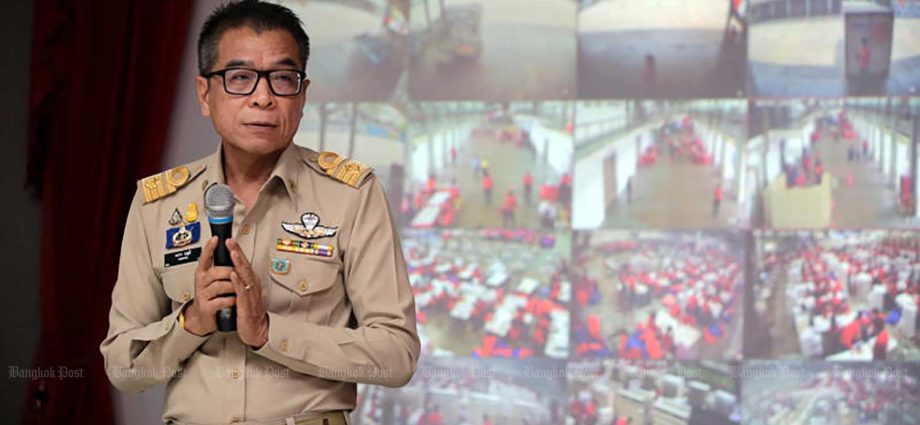PUBLISHED : 28 Nov 2023 at 05:10

The Election Commission (EC) on Monday issued a staunch defence of its methods following criticism over a perceived delay in processing complaints from the May general election, saying it needed time to look into complex legal details.
Since the May 14 poll, the EC has red-carded one candidate, Ketkanda Inchuay, who was running for an MP seat in Bangkok’s Constituency 16, and her campaign assistant, Duangruedee Phansomton, for engaging in vote-buying in the lead-up to the election.
The EC has come under fire from critics who accuse the agency of being too slow to act on complaints. The commission has up to a year from the date of the election to suspend or take legal action against candidates or MPs who may have broken the law.
On Monday, Sawang Boonmee, the EC secretary-general, took to his personal Facebook page to explain the EC’s handling of election complaints and why the agency has not issued more yellow or red cards.
He said the EC had used the time to devise supplementary measures to make its investigation thorough and the evidence watertight enough to guarantee convictions.
As many poll-related cases must be brought before the Criminal Court, they require solid evidence and witness accounts to back them up, which require a thorough and time-consuming investigation.
Mr Sawang added there is no denying the fact that election fraud can be complex, especially as it involves people who aspire to assume public office.
He noted many malpractices were committed with the full consent of vote sellers who profess true faith in the party that buys votes from them.
The vote buyers were also doing everything in their power to win the high-stakes election. This calls for complicated malpractice investigation processes, which make swift resolutions difficult, he said.
The EC, Mr Sawang added, has decided to focus more on preventing and deterring vote fraud by launching fast-deployment, joint patrols with local authorities in various constituencies to monitor situations on the ground. The patrols have succeeded in preventing poll-related crimes or foiling them.
Prevention lowers election fraud, which in turn reduces the need to issue yellow or red cards.
He said it was a waste of resources and time organising a by-election.
According to Mr Sawang, the EC received 365 poll complaints from the last election, significantly down from the 2019 general election when 592 complaints were lodged.

